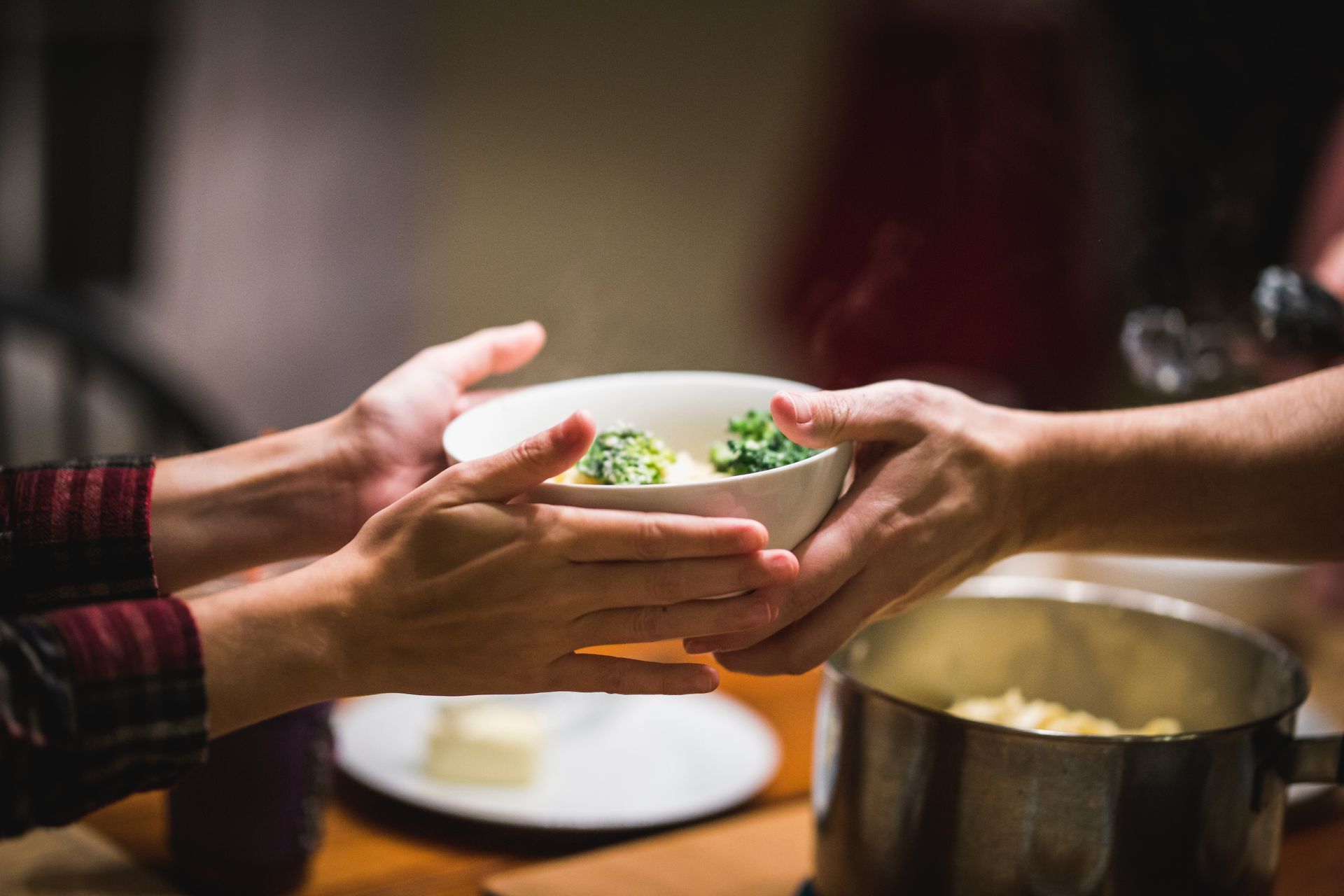Theology of a Multi-Ethnic Community
Download Theology of Multi-Ethnic Community: How We All Bear the Image of God
Put in simple words, the Bible is God’s word explaining the story of who He is and our relationship to Him. And anytime you tell a story, especially about a relationship, the beginning sets a trajectory for everything that will follow. What does God say at the beginning of our story - the very first words He chooses when humanity enters the scene?
Genesis 1:26-27 “Then God said, ‘Let us make mankind in our image, in our likeness, so that they may rule over the fish in the sea and the birds in the sky, over the livestock and all the wild animals and over all the creatures that move along the ground.’ So God created mankind in his own image, in the image of God he created them; male and female he created them.”
From the moment the story of humanity starts, before we hear anything about what mankind is to be or to do, God wants us to know something important ... humanity is made in His image! Any understanding of ourselves, our communities, or our world must begin with that truth. And when we begin with that truth, we can understand a few things about humankind:
Everyone has a unique and eternal value.
- Because we’re all made in God’s image, no one is a second class citizen regardless of race, socio-economic background, education, abilities, etc.
- When we count our own value above another’s, we are driven from connection to consumption. We sin against each other (violence, discrimination, emotional abuse, sexual abuse, etc.) to satisfy our own desires, rather than looking to the good of all mankind. Most of the strife in our world is rooted in this simple truth: we don’t value each other enough.
Everyone has a God-given purpose on this earth.
- We are made to bear the image of God. Essentially, we want others to see us and say: “I can tell what God looks like by looking at you.” The people of God, even with all their differences, are united as one in the common purpose of sharing His image with the world.
- When we forget our purpose, we begin to use our lives to glorify our image rather than that of God and His Kingdom. We believe our way is right, and anyone different is wrong. We start isolating ourselves out of pride and our relationships become more and more limited until we’ve surrounded ourselves with people who are just like us. Most of the division in the world is rooted in this simple truth: we are glorifying our own image, not God’s.
It is important for us to look at another verse as we discuss being made in the image of God.
Revelation 7:9 After this I looked, and there before me was a great multitude that no one could count, from every nation, tribe, people and language, standing before the throne and before the Lamb.
This verse is talking about the disciple John getting an image from heaven as humanity is restored to the way God intended us to be, through the sacrifice of Christ. Basically, we are restored to perfectly exhibiting the image of God. But notice ... ethnicity, language, and culture are still distinct when this happens! This means that those things are eternal and part of our bearing God’s image! The image of God is reflected in every tribe, nation, and tongue. He is not found in just one cultural expression, but all.
Yet, if we’re honest, the world hasn’t done well at honoring God’s image in ethnic diversity, right? Every human has sinned against others, neglecting each other’s value and purpose, and the systems we create reinforce our sinful attitudes. This plays out in racism, social injustices, discrimination, and systemic inequality.
If the Kingdom of God is made of every tribe, tongue, and nation, then it is our responsibility as followers of Christ to create and nurture a culture of hospitality so that anyone from any tribe/tongue/nation can be in fellowship with us, and experience the Kingdom as it should be: a place of healing, hope, the righting of wrongs, and reconciliation. In Chi Alpha, we believe every student (regardless of ethnicity or culture) shares in this responsibility to care for those that are - and aren’t yet - represented in our fellowship. What does it mean for us to nurture a culture of hospitality that embraces different ethnic expressions of the Gospel and the diverse design of God’s image bearers?
Nurturing a Culture and Space of Hospitality
It is important to note that if you are within the majority culture, you may not realize how most aspects of society are tailored towards you. Your way is presented as the “right” way, (ex: most toy dolls are portrayed as white beyond actual population statistics) and it is usually affirmed by what you’re taught in school, people in leadership positions, the media (movies, TV, magazines), etc. It takes a conscious effort to consider how someone not in the majority culture might experience a space differently. Imagine visiting a foreign country. What are some differences you might notice as you enter a space where you might be the minority? Differences could include language, cuisine, schedules, dress code.
Now consider what someone from a different ethnic background/culture might experience when entering a space you’ve created. Do they feel like they are “at home” with their brothers and sisters in Christ, or do they feel like an outsider? Here are four suggestions to consider:
Listen : Cross-cultural community will require us to be willing to ask questions about what the minority experience is like. Ask others if they’re comfortable sharing their perspective. Then, if they are, listen. Listen in a group setting, listen in a one-on-one setting. Gain a new perspective in how others process the world you live in. Listening involves empathizing, mourning with those who mourn, and rejoicing with those who rejoice. What we hear may not always be pleasant; but we need to persevere in love to foster a setting for healing. In order to listen well, we should also be aware of current events that might affect brothers and sisters of different ethnic backgrounds. There’s no need to be an expert on all topics, but we should be informed and educated on issues that affect our friends if we hope to truly love and experience fellowship with them. What’s going on in your city, state, country, or the world?
Commit to growing as an individual : When we are in a multi-ethnic community, it is vital that we all take a posture of humility, admitting that we don’t fully understand each other’s experiences but that we’re willing to grow. Proverbs 27:5-6, tell us that we can trust correction from a friend. This means that when someone tells us how our words or actions have made a friend of another ethnicity/culture feel unwelcome (whether they are that individual, or not), we can trust that they shared this because they love us, and respond with humility, gratitude, and a willingness to grow.
Commit to helping your community grow : Proverbs 27:5-6 told us to trust correction from a friend. This also means that if we are to be loving friends, we may have to let our friends know when they miss the mark. It may look like correcting someone for saying insensitive comments or encouraging a friend to become informed on topics of gospel-centered racial reconciliation. However, we should do this in love. We have a wonderful opportunity to share God’s heart for a diverse Kingdom with people for whom college may mean entering the most diverse setting they’ve ever been in. Let’s stand up for love and truth by truthfully and lovingly correcting those we’re in relationship with in our Core Groups, houses, and community at large!
Make changes to your spaces : Think through aspects of your Core Group or other spaces that you can adjust to create a more welcoming atmosphere. Consider the music you play, the food you serve, and the words you choose. How can you challenge yourself and others to intentionally create a space where people feel celebrated and uplifted as they enter into fellowship? The hope is they would feel seen, valued, and loved for the beautiful representation of God’s image that they are.
As a final encouragement, remember to pray for unity in our Chi Alpha community, and in the Church at large. There are some deep wounds and strongholds that exist in peoples’ hearts. We need to partner with the Holy Spirit through prayer so that His power can break the effect of sin in our own lives, and in our relationships. The following is a prayer adapted from the Book of Common Order of the Church of Scotland:
God and Father of all, in your love
you made all the nations of the world to be a family,
and your Son taught us to love one another.
Yet our world is split apart by prejudice, arrogance, and pride.
Help our different races to love and understand one another better.
Increase among us sympathy, tolerance, and goodwill,
that we may learn to appreciate the gifts that all races bring to each other,
and to see in all people our brothers and sisters for whom Christ died.
Save us from jealousy, hatred, and fear, and help us to live together
as members of one family at home in the world, sons and daughters of one Father
who live in the liberty of the children of God; through Jesus Christ our Lord. Amen.
Relevant Scriptures
Psalm 67
2 Corinthians 5:14-21
Mark 12:30-31
Questions for Discussion
How have you seen someone respect your value? Your purpose? How could you do this for others?
Which of the 5 steps to nurturing a culture of hospitality do you currently practice? Which do you struggle with?
What practical step can you take to be better informed about the experiences of minority communities around you?
Recommended Reading:
Insider Outsider by Bryan Loritts
Disunity in Christ by Christena Cleveland
Just Mercy by Bryan Stevenson
Why Are All the Black Kids Sitting Together in the Cafeteria by Beverly Daniel Tatum
Life Together by Dietrich Bonhoeffer




